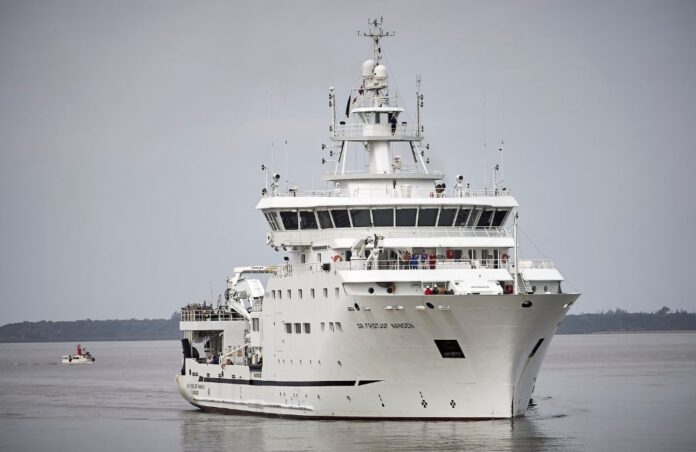By: Staff Writer
June 30, Colombo (LNW):Sri Lanka has lost a rare opportunity to advance its marine research and bolster long-term food security, following bureaucratic delays and indecisive political coordination that led to the cancellation of a high-level UN-supported marine expedition.
The UN-flagged research vessel Dr. Fridtjof Nansen, operated by the Food and Agriculture Organization (FAO), was scheduled to carry out a major marine ecosystem study in Sri Lankan waters between July 15 and August 20. However, the mission was aborted due to delays in granting official clearance, and the vessel was redeployed to Madagascar, which responded more swiftly, UN sources confirmed.
Originally proposed by the Ministry of Fisheries in 2023, the initiative had received initial clearance from the ministry itself. But this approval was later withdrawn after intervention by the Ministry of Foreign Affairs (MFA), which insisted that no permissions would be issued for foreign research vessels until a new Standard Operating Procedure (SOP) was finalized. A committee chaired by Foreign Minister Vijitha Herath was tasked with developing this SOP.
President Ranil Wickremesinghe later intervened, consulting the National Security Council and instructing the Fisheries Ministry to grant clearance. However, by the time the decision reached the relevant authorities, it was too late for the vessel to proceed with its Sri Lanka mission.
The UN Resident Coordinator’s Office had formally written to the MFA on June 12, urgently seeking permission to proceed based on the original government request. The letter also offered to provide further information in an urgent meeting. Despite this, only verbal confirmation was given on June 23—over ten days later—rendering the mission unviable.
This cancellation represents a significant scientific and economic loss. The FAO conducts such research missions only every six to ten years, with the previous visit to Sri Lanka occurring in 2018. The UN Resident Coordinator’s Office expressed deep concern in a letter to the MFA, noting that the mission’s cancellation would result in direct losses of over USD 1 million and undermine crucial climate resilience programs supported by the Green Climate Fund, which relied on the data expected from the F. Nansen expedition.
The mission would have involved collaboration between FAO experts, Sri Lankan scientists from the National Aquatic Resources Research and Development Agency (NARA), and Sri Lanka Navy officers, all working under strict national regulations. The FAO also clarified that all data would have been published only with prior government approval.
A letter dated May 19, 2025, from the Ministry of Fisheries formally cancelled the vessel’s visit, citing the pending SOP development—a delay that now pushes any future mission possibility to beyond 2030.
